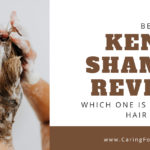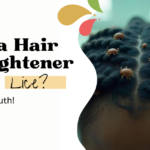This is something that most people are in trouble with. But with the right information, the dandruff vs dry scalp issue will not bother you again. Both conditions need a different approach to treatment.
That is why it becomes important to differentiate one from the other. However, these conditions are not chronic or dangerous. Still, precautions and treatment are recommended to avoid further complications.
To better separate both conditions, let’s have an introduction to each to learn more details and then find the key signs.
Dandruff
This is a condition that most of us have gone through at least once in our lives. Dandruff causes the scalp to become flaky, with flakes falling out on our shoulders and ruining our dress. Imagine being in a meeting or at an important occasion and flakes falling out on your dress. How embarrassing it could be!
Those flakes are the build-up of unsaturated fatty acids that do not break down. Despite being an annoying condition, it is harmless and does not need treatment unless there is a serious situation.
The same issue, with more intensity, happens in children and we call it cradle cap. And the base of both issues is referred to as Seborrheic Dermatitis. This condition, in adults, appears on the face, scalp, and eyebrows.
Causes and Symptoms
There is no exact cause for dandruff. However, if we are to blame one specific scenario that could be a strong cause, it should be Malassezia.
This yeast is found in humans and animals. It is responsible for feeding on the saturated fatty acids of sebum oil, leaving unsaturated acids behind, which results in flakes.
Another possible condition is the overproduction of sebum. The sebaceous glands in our skin are responsible for the production of Sebum oil to moisturize and protect our skin.
When these glands somehow over activate, they produce more than enough oil. Excessive oil can cause a build-up of flakes.
Is dandruff contagious?
No, it is not. You cannot get or transfer dandruff by touching another person or his/her accessories. However, it can spread to the face and other body parts (severe case) if left untreated for a long time.
Treatment

If the case is unusual, we will recommend medicated dandruff shampoo. And it is enough to say goodbye to Dandruff. The excessive oil build-up, annoying flakes, itching, mild smell, and all these concerns will be solved after using this shampoo.
Use this shampoo two times a week. However, you should take daily baths to remove extra oil from your scalp. If the scalp is dry, reduce the bath count to 1 or 2 times weekly. Adjust shampoo usage according to the symptoms.
Recommended: Oribe vs Olaplex: Which is the Best Haircare Brand?
Dry Scalp
Dry scalp is not a disease itself. However, it could be a symptom of an underlying scalp disease like:
- Dandruff
- Psoriasis
- Ringworm
- Scalp Eczema
Another possibility is that your scalp is just dry, without any disease. It just needs extra moisture. This is the condition that we refer to as dry scalp. If dryness is caused by a disease, seek specific treatment.
If dryness is normal, there is no need to worry about it. Still, it is better to maintain good scalp health for proper hair growth because dry scalp is not considered normal.
Everyone can have dry scalp, regardless of ethnicity, gender, and location, and there is no age limit for it.
Causes
There is no exact cause behind it.
Treatment
If dryness is normal and does not bother you, it is safe to ignore it. Dryness often causes itching, which is very bothersome.
Scratching the skin frequently may lead to damaged skin or temporary hair loss. So, it is better to address dry scalp soon.
A good moisturizer will be enough for its treatment. Whenever you take a bath, apply moisturizing cream or shampoo on the scalp. You can also massage the scalp with natural oils.
You May Also Like: The Lowdown: Vegamour vs Kerastase Face-Off
Dandruff vs Dry Scalp: Key Differences

After reading their details, it should be easy to differentiate between dandruff vs dry scalp. Dandruff causes flakes and excessive oil on the scalp. The scalp might smell oily. The flakes could also spread on the face.
A dry scalp is just the dryness of the scalp. The scalp could be flaky, but those flakes will be smaller than those in dandruff. These could be built of dust particles. A dry scalp may itch.
These are the key signs that help identify a particular condition.
Recommended: Ion Shampoo Reviews That You Can’t Miss!
Conclusions
Both conditions are harmless but could be annoying for someone seriously concerned with scalp health. I hope dandruff vs dry scalp is not a big concern for you after reading this blog.
It could be possible that these conditions go away on their own. If nothing works or the diagnosis is not as straightforward for you as it should be, seek professional help.

Hi there! I’m Anya – your virtual hair BFF behind Just Hair Things. Whether it’s heatless curls, scalp care, or those “why is my hair doing this?!” moments, I’ve got your back. I’m all about keeping it real, relatable, and a little bit fabulous 💁♀️. Let’s talk hair, spill tips, and slay every strand together!









